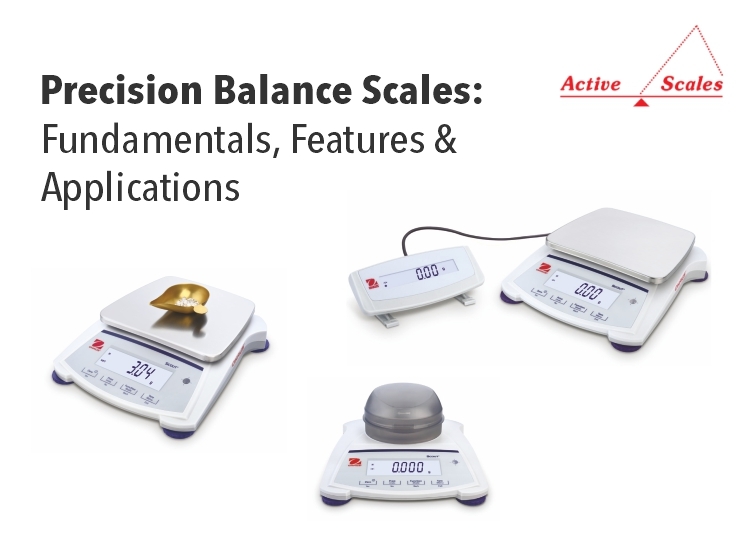 Image Designed by Freepik
Image Designed by Freepik
Precision Balance Scales: Fundamentals, Features, and Applications
Precision balance scales play a crucial role in various industries, from laboratories to commercial settings. With advancements in technology, these scales have evolved to meet specific needs, such as equine scales for veterinary practices or commercial weighing scales for businesses. In this blog, we'll delve into the fundamentals, features, and applications of precision balance scales, with a focus on their versatility and importance in different sectors.
Fundamentals of Precision Balance Scales
Precision balance scales are designed to provide accurate measurements of weight, ensuring reliability and consistency in various applications. They utilize advanced sensor technology and calibration techniques to deliver precise readings, often with high resolution and sensitivity.
Key components of precision balance scales include:
- Load Cell: This is the heart of the scale, responsible for converting the force of weight into an electrical signal.
- Digital Display: Most modern precision balance scales feature digital displays for easy reading of measurements. These displays often provide additional features such as tare function, unit conversion, and data recording.
- Platform: The platform of the scale is where the object being weighed is placed. It's essential for the platform to be stable and durable to ensure accurate measurements.
Features of Precision Balance Scales
Precision balance scales come with a range of features to meet specific needs and preferences. Some common features include:
- High Precision: These scales offer high accuracy and precision, often with resolutions down to milligrams or even micrograms.
- Tare Function: The tare function allows users to zero out the weight of containers or additional items, enabling accurate measurement of the desired substance.
- Unit Conversion: Many precision balance scales support multiple units of measurement, making them versatile for different applications and industries.
- Data Recording: Some models come equipped with data recording capabilities, allowing users to store and analyze measurement data for quality control or research purposes.
- Calibration Options: Calibration is essential for maintaining accuracy over time. Precision balance scales may offer various calibration options, including internal calibration or external calibration with calibration weights.
Applications of Precision Balance Scales
Precision balance scales find extensive applications across a myriad of industries, each benefiting from their accuracy and versatility:
- Laboratories and Research Institutions: In scientific research and experimentation, these commercial scales are indispensable for accurately measuring chemicals, compounds, and samples. From pharmaceutical research to environmental analysis, these scales ensure precise measurement of substances, which is crucial for maintaining the integrity and reproducibility of scientific results.
- Pharmaceutical Manufacturing: Precision balance scales are vital in pharmaceutical manufacturing processes, where precise dosages of active ingredients are critical for drug formulations. These scales ensure that medications are produced with accuracy and consistency, adhering to strict quality standards and regulatory requirements.
- Jewelry and Gemology: Jewelers and gemologists rely on precision balance scales for precise measurement of gemstones and precious metals. These scales enable accurate determination of carat weight, facilitating fair pricing and quality assessment in the jewellery industry.
- Commercial Settings: In retail stores, commercial kitchens, and manufacturing facilities, precision balance scales play a crucial role in portion control, packaging, and quality assurance. From weighing ingredients in recipes to ensuring uniform product packaging, these scales contribute to efficiency and consistency in commercial operations.
- Veterinary Practices: Equine scales, a specialized type of precision balance scale, are essential in veterinary practices for weighing horses and other large animals. These scales enable veterinarians to monitor the health and growth of animals, facilitate accurate medication dosages, and assist in the diagnosis and treatment of various medical conditions.
- Food Industry: In the food industry, precision balance scales are used for portion control, recipe formulation, and quality control. From bakeries measuring ingredients for recipes to food manufacturers ensuring accurate packaging of products, these scales help maintain consistency and compliance with regulatory standards.
- Chemical and Petrochemical Industry: Precision balance scales are employed in chemical and petrochemical industries for measuring raw materials, intermediates, and final products with utmost accuracy. Whether in laboratory research or industrial production processes, these scales contribute to the precision and reliability of chemical analysis and manufacturing operations.
- Educational Institutions: Precision balance scales are valuable tools in educational settings, where they are used for teaching principles of measurement and experimentation in science classrooms and laboratories. Students gain hands-on experience with accurate weighing techniques, fostering their understanding of scientific concepts and methodologies.
Conclusion
Precision balance scales are indispensable tools in various industries, offering accuracy, reliability, and versatility in measurement applications. Whether it's for laboratory research, pharmaceutical manufacturing, jewellery appraisal, or commercial weighing needs, these scales provide the precision required for critical measurements.
If you are searching for a supplier of commercial Scale in Melbourne, look no further than Active Scales. With advanced features and specialized models like equine scales, precision balance scales continue to play a crucial role in ensuring quality and efficiency across diverse sectors.
 Image Designed by Freepik
Image Designed by Freepik